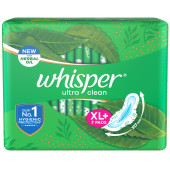Puberty – Know What’s Normal and Not


Hitting puberty is a milestone that is almost always accompanied by a certain amount of anxiousness, excitement and awkwardness. Most girls have various doubts regarding the many changes that happen during puberty. It can be hard to identify normal from unusual. We have put together some of the most common concerns so that you can be sure of what’s right.
Quick Facts
- Puberty in girls begins between 8 to 10 years of age and lasts for about four years.
- The age at which puberty begins largely depends on body weight, nutrition and genetics.
- Release of the hormone estrogen leads to the development of the reproductive system.
- The order of physical changes typically is – breast budding, followed by hair growth in armpits and the genital area, growth spurt until periods begin, after which the growth spurt reduces.
- Menstruation starts about 2-3 years after breast growth.
Puberty is a rather confusing and stressful time for adolescent girls. So, what is it that you can expect to go through?
Period Cramps

It is normal to experience some amount of backache, pain in the thighs and stomach cramps. But excruciating period pain is not normal. Period cramps most likely occur on the first two days of the period or before menstruation begins. If bad menstrual pain keeps you from going to school or doing regular activities, it may be better to consult a doctor as it could indicate an underlying medical problem or could be a condition called dysmenorrhea.
Physical Changes
Most girls feel awkward with the way their body is changing. While many girls these days are aware of what happens during puberty, the one thing you must remember is that there is no fixed rule about what happens when. Every girl is different, and so is her body. While hair growth in the underarms, legs, arms and in the genital area is seen as a natural event, you may see hair on your upper lips, chin and nipples. This too is normal, and you can talk to a trusted adult if you need reassurance or guidance on ways of hair removal.
Emotional Changes

Irritability, moodiness, anger bursts and an emotional upheaval during periods are common symptoms. It though is important that you keep a check on the severity of your mood swings and other symptoms, as an alarming degree of it could indicate a syndrome called PMDD (Premenstrual Dysphoric Disorder). PMDD can be treated, so if you think you are showing the symptoms, talk to you doctor for an appropriate treatment. If you shows five or more of the following symptoms to an abnormal extent, then she may be suffering from PMDD.
- Despair with possible suicidal thoughts
- Fatigue
- Disinterest in daily activities and relationships
- Low on energy
- Lasting feelings of tension or anxiety
- Intense mood swings
- Trouble thinking or focusing
- Food cravings or binge eating
- Feeling out of control or overwhelmed
- Panic attacks and crying
This is also the time when you may feel like withdrawing yourself from social activities, when friendships could pose challenges or when you feel low on self-confidence and self-esteem. Just remember, you are a champ for braving through all of this and we encourage you to plan and participate in activities.
Spotting

Spotting just before the period or just after is normal. This is simply the period blood, but if you notice spotting between periods in the middle of the month, unpredictably or frequently, you must consult your doctor, as these could have several reasons, some pointing towards medical conditions as well.
Early or late Puberty
There is no right time for puberty to begin. As mentioned, every girl’s body is different and is growing at its own pace. Puberty in girls’ beings around the ages of 8-10. You may begin puberty earlier or later and finish sooner or later than your friends.
In case you have not noticed any pubertal changes by the age of 13 or you haven’t had your period by 16, do talk to a trusted adult or a doctor.
Dietary Measures

There is no need to follow any stringent diet only because you’re going through puberty. However, this is also a good time to indulge in good eating habits. Increased intake of leafy vegetables, fruits, along with reduced consumption of coffee and junk food will help you in the long run. As also will ensure that you experience minimal period pain. Staying hydrated for example will always prove a boon to your health and skin.
Staying Active

Most girls would agree on not wanting to do any physical activity during periods, but it is important that you understand the importance of regular exercise in any form – sports, brisk walks, jogging or yoga. Staying active will keep your energy levels high and keep you healthy.
While it is not necessary to make an appointment with your doctor when you get your first period, you must consult the doctor if you:
- Have severe menstrual cramps.
- Experience heavy painful periods or those that last more than seven days.
- Have vaginal itching, redness or an unusual discharge with odour.
- Notice a change in the regularity of your periods after more than a year.
- Need to frequently urinate or have a burning sensation when you urinate.





